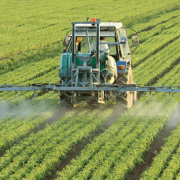Agriculture will track the Equal Opportunities Plan to monitor its effectiveness
The Minister of Agriculture, Fisheries and Rural Development of the Andalusian Government, Carmen Ortiz, has announced that her department will follow up on the first ‘Equality Plan for Women and Men in Andalusia Horizon 2020’, to know the impact of the measures contemplated in this document, conceived as “a living instrument with an open format of continuous revision”. Ortiz explained that soon a commission will be set up to carry out this work and that in 2018 an interim report will be carried out in order to “test the results and effectiveness of the actions” implemented so far by the CAPDER.
Speaking at the parliamentary committee on May 31th, the head of Agriculture said that “we can not speak of a developed and democratic society if one half of its population is below the other half in rights and opportunities”. In addition, “inequality is expensive,” added the counselor in reference to this lack of equity “directly affects the economic and social cohesion of the population, as well as its sustainable growth, competitiveness and demographic development.”
Carmen Ortiz: “this plan, the second sectoral of Andalusia, marks a substantive difference in the course of more than two decades of work with a gender perspective within the framework of action of the Ministry”
The holder of Agriculture has put in value the participatory process that has served as the basis for the development of the Equal Opportunities Plan, in which groups, associations and entities representing women living or working in rural and fishing areas in Andalusia have actively collaborated. Ortiz thanked the “constant, permanent and tireless work” of these people for “winning for women spaces and rights that are rightfully theirs.”
This strategy, prepared by Agriculture and approved by the Governing Council last January, is part of the overall gender equality policy of the Board, but it deals in detail with the problems of the rural and fishing milieu
Planning
During her speech, Carmen Ortiz stressed that this initiative aims to extend the transversal gender approach to the entire area of responsibility of the Ministry that directs and for this “we proposed to design an integrative planning document that took advantage of the possibilities and instruments of which we have”. Specifically, the Minister referred to the new Andalusian Rural Development Program (PDR) 2014-2020, the Operational Program of the European Maritime and Fisheries Fund, and the regulatory security that the Andalusian Agriculture and Livestock Law has already completed its public information phase.
The head of Agriculture stressed that this plan adds more than 40 actions articulated in nine measures and three axes with which it aims to provide “realistic tools” that give an “effective response” to the imbalances that are observed today. The first of these focuses, focusing on equality in agri-food and fisheries policies and activities, brings together measures aimed specifically at women as main beneficiaries and others aimed at gender mainstreaming. In particular, the actions of this section aim, as Ortiz has commented, “to redistribute access and control of resources, work opportunities and responsibilities”, while promoting “the balanced participation of women and men in all areas of the life”.
The balance of both genders is also addressed in the second axis of the plan, which specifically focuses on the representation of women and men in the spaces of dialogue with the aim of advancing a dialogue with a gender perspective with the representative entities, groups and organizations of the field, the sea and agro-industry. Finally, the third path of work of the Equality Plan of the Ministry of Agriculture seeks, among other measures, the integration of this principle in the organizational culture of the department sensitizing in this matter its staff and management team.
In order to develop a plan that responds to the current reality of the agri-food and fisheries sector, the Andalusian Government has carried out a complete and detailed diagnosis of the situation of men and women in these activities
Among other conclusions, the resulting document reflects that this is a field with a strong masculinization of employment and a low rate of female entrepreneurship where women have little presence in positions of responsibility (vertical segregation), suffer precarious work (for example, Lower income and greater vulnerability) and participate more in the shadow economy. These circumstances entail, among other consequences, a greater economic dependence and lack of autonomy of the women with respect to the men.
Source: CAPDER
















